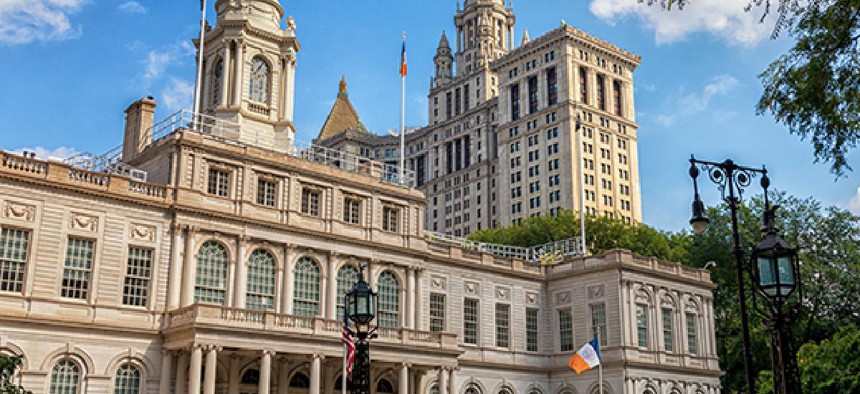New York City budget offers new hope for Close to Home program

Shutterstock
For Close to Home providers, the ongoing New York City budget process represents a chance to recover $41.5 million in funding lost in the recently approved state budget.
The City Council’s response to Mayor Bill de Blasio’s preliminary budget highlighted these cuts and the need for the city to pick up at least $31 million in unfunded state mandates for Close to Home. While the city’s Administration for Children’s Services, which oversees the program, has maintained a low profile since the passage of the state budget, Close to Home providers said they remain optimistic that the agency will secure the funding necessary to keep Close to Home going. They are expecting the support of the council and de Blasio.
A proposal in the City Council’s response to provide discounted MetroCards to low-income New Yorkers grabbed headlines on Wednesday, but the response also mentioned unfunded mandates from the state. They include $200 million to support Raise the Age, which prevents most 16- and 17-year olds from being charged as adults, and the $31 million needed for Close to Home, according to an April 10 City Council press release.
The $31 million figure reflects how much the city is owed based on actual spending by ACS for Close to Home, according to a spokesperson for City Council Speaker Corey Johnson.
The cuts come at a time when the city is racing to implement Raise the Age legislation by this fall. This effort depends on Close to Home, which places juvenile offenders within their local communities rather than in upstate facilities. A wide range of elected leaders are depending on a solution to Close to Home’s budgetary shortfall, City Councilman Andy King, chairman of the Committee on Juvenile Justice, said in a telephone interview.
“The young people who get placed in (that) situation, whether it’s through bad behavior or mismanagement of the household due to the adults in their lives, are counting on us and we need them to be better adults as they grow older,” he said. “If we’re saying that we really want to do this the right way, then let’s put our money where our legislation and our mouths are.”
He added that the future of Close to Home will be discussed at the April 18 meeting of the Committee on Juvenile Justice, which follows a meeting King said he had with ACS Commissioner David Hansell last week. Hansell has yet to speak publicly about how the agency is planning to ensure the fiscal stability of the program, but he reiterated in a statement that he remains committed to the program.
Close to Home began in 2012 and preliminary research suggests that the program has been effective in helping youth stay out of trouble after initial run-ins with the criminal justice system. There has been a 53 percent reduction in youth arrests in New York City, a 37 percent decline in youth detention and a 68 percent decline in out-of-home placements. These successes are percentage points ahead of similar reductions experienced statewide, according to research from the Columbia University Justice Lab.
Providers said they are confident that a regularly scheduled quarterly meeting among ACS and Close to Home providers will include a discussion on the issue. The next version of de Blasio’s budget for the upcoming fiscal year is expected later this month.
While the exact budgetary details remain up in the air, Jeremy Kohomban, president and CEO of The Children’s Village, said in a telephone interview that the program must continue because the wheels of government, bureaucracy and progress have already turned too far.
“We can’t return to a pre-Close to Home era,” he said. “There’s no way to get there. There are no upstate facilities to send our kids to. This is the future. We are in the future.”
NEXT STORY: Here are the winners of the 2018 NYN 40 Under 40
